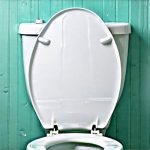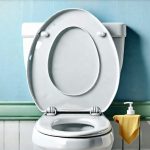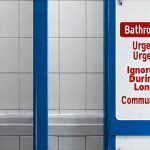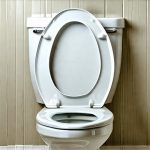The insistent call of nature – particularly first thing in the morning – is something most people experience. It’s often dismissed as simply needing to empty the bladder after several hours of sleep. However, for a significant number of individuals, this early-morning urgency isn’t merely physiological; it’s deeply intertwined with underlying anxiety, manifesting as a physical symptom exacerbated by the stress and anticipation associated with the day ahead. This phenomenon can be incredibly disruptive, impacting sleep quality, increasing stress levels, and even leading to social anxieties around potential accidents or inconveniences. Understanding this connection is crucial for developing effective coping strategies and seeking appropriate support when needed.
The interplay between mind and body is profound, and often underestimated. Anxiety doesn’t exist in a vacuum; it triggers a cascade of physiological responses, including increased heart rate, muscle tension, and heightened sensory awareness. The urinary system is particularly sensitive to these stress responses. When we experience anxiety, even subconsciously (like the anticipatory anxiety common before waking), our sympathetic nervous system – responsible for the “fight or flight” response – kicks into gear. This can lead to bladder contractions and a perceived urgency, regardless of actual bladder fullness. It’s not about having a full bladder so much as feeling like you do, driven by anxious thoughts.
The Anxiety-Bladder Connection: A Deeper Dive
The link between anxiety and urinary frequency/urgency is complex and multifaceted. It’s important to differentiate this from other causes of frequent urination, such as diabetes, UTIs, or prostate issues (for men). In cases linked to anxiety, the urgency often appears specifically in the morning, coinciding with the heightened stress associated with facing the day. This isn’t a coincidence; it’s a clear indicator that psychological factors are at play. The anticipation of work deadlines, social interactions, financial worries, or even just the general demands of daily life can all contribute to this early-morning anxiety and subsequent bladder symptoms.
This connection is further reinforced by the brain’s interpretation of signals. Anxiety heightens our attention to bodily sensations. Someone experiencing anxiety might be more attuned to subtle bladder fullness that they would normally ignore, interpreting it as a pressing need to urinate. This creates a feedback loop: anxiety causes urgency, which then amplifies anxiety about potential accidents or inconveniences, leading to even greater urgency. It’s like a self-fulfilling prophecy fueled by anxious thought patterns. Furthermore, the act of waking up itself can trigger anxiety for some individuals – the transition from sleep to wakefulness represents a loss of control and an entry into the unpredictable demands of the day. If you suspect something more is going on, consider digestive diagnostics to rule out other causes.
Consider these contributing factors:
– Catastrophic thinking: Imagining worst-case scenarios (e.g., not making it to the bathroom on time).
– Hypervigilance: Being overly aware of bodily sensations, particularly those related to the bladder.
– Conditioned response: If urgency has been associated with anxiety in the past, the brain may learn to automatically trigger urinary symptoms when experiencing stress.
– Sleep disruption: Anxiety often interferes with sleep, and poor sleep can exacerbate both anxiety and urinary symptoms. Early tests could help identify underlying causes.
Addressing the Root Cause: Managing Morning Anxiety
Simply treating the urinary symptom isn’t enough; addressing the underlying anxiety is key to long-term relief. This requires a multi-pronged approach that combines lifestyle adjustments, stress management techniques, and potentially professional support. It’s important to remember that seeking help is a sign of strength, not weakness. Many resources are available for individuals struggling with anxiety, and finding what works best often involves experimentation and self-compassion.
One of the most effective strategies is establishing a consistent bedtime routine designed to promote relaxation and reduce pre-sleep anxiety. This could include taking a warm bath, reading a book (avoiding screens), listening to calming music, or practicing gentle stretching. Avoiding caffeine and alcohol before bed is also crucial, as these substances can disrupt sleep and exacerbate anxiety. In the morning, instead of immediately jumping out of bed and focusing on anxious thoughts, try incorporating mindfulness practices like deep breathing exercises or meditation. Even five minutes of focused breathing can significantly reduce stress levels and promote a sense of calm. What to drink in the morning can also play a role in reducing anxiety.
Furthermore, cognitive behavioral therapy (CBT) is often highly effective in addressing anxiety-related urinary symptoms. CBT helps individuals identify and challenge negative thought patterns that contribute to their anxiety, replacing them with more realistic and adaptive ones. A therapist can also teach coping mechanisms for managing stressful situations and reducing overall anxiety levels. It’s about learning to reframe anxious thoughts and develop a healthier relationship with bodily sensations. If you experience reflux alongside these issues, check out gut bacteria imbalance.
Understanding the Role of Mindfulness
Mindfulness is more than just a buzzword; it’s a powerful tool for managing anxiety and breaking the cycle of urgency. It involves paying attention to the present moment without judgment, accepting your thoughts and feelings as they arise without getting caught up in them. For individuals experiencing anxiety-related urinary urgency, mindfulness can help disentangle the anxious thought from the physical sensation.
Here’s how it works:
1. Recognize the Anxiety: Acknowledge that you are feeling anxious and identify what is causing it (even if it’s just a general sense of dread about the day ahead).
2. Focus on Your Breath: Pay attention to the sensation of your breath entering and leaving your body. This anchors you in the present moment.
3. Observe Urgency as a Sensation: When you feel urgency, don’t fight it or try to suppress it. Simply observe it as a physical sensation without labeling it as something negative or frightening. Notice its intensity, location, and any accompanying sensations.
4. Allow It to Pass: Remind yourself that the sensation will eventually pass. Anxiety is temporary, and so are urinary urges.
Practicing mindfulness regularly, even outside of moments of urgency, can help desensitize you to anxious thoughts and reduce their impact on your body. There are numerous apps and resources available online to guide you through mindfulness exercises. Sugar cravings often exacerbate anxiety, so address those too!
The Importance of Bladder Training (with Caution)
Bladder training is a technique often recommended for individuals with urinary frequency or urgency. However, when anxiety is the primary driver, it must be approached cautiously and ideally under the guidance of a healthcare professional. The goal isn’t to force yourself to hold urine for extended periods – that can actually exacerbate anxiety and create a negative association with your bladder. Instead, bladder training involves gradually increasing the intervals between bathroom visits, even if you don’t feel a strong urge.
Here’s a gentle approach:
– Start by tracking your urination patterns for a few days to establish a baseline.
– Identify times when you typically urinate “just in case,” even without a strong urge.
– Gradually increase the time between bathroom visits, starting with just 15-30 minutes.
– Use distraction techniques (e.g., reading, listening to music) to manage any urgency that arises.
– Never restrict fluid intake drastically while bladder training; dehydration can worsen urinary problems and anxiety.
It is crucial to emphasize again: this should be done in conjunction with addressing the underlying anxiety. Bladder training alone won’t solve the problem if anxiety remains unaddressed. Early tests can help determine if bloating is a contributing factor, too.
Seeking Professional Support & Ruling Out Other Causes
If early-morning urgency is significantly impacting your quality of life, or if you’ve tried self-help strategies without success, seeking professional support is essential. A healthcare provider can help rule out any underlying medical conditions that might be contributing to your symptoms and provide appropriate guidance. This may involve a physical exam, urine analysis, or other diagnostic tests.
Don’t hesitate to:
– Talk to your primary care physician about your concerns.
– Consider seeing a therapist specializing in anxiety disorders.
– Explore options like CBT or mindfulness-based stress reduction (MBSR).
– Be honest and open with your healthcare provider about your symptoms and anxieties.
Remember, you’re not alone, and help is available. Addressing the link between bathroom urgency and early morning anxiety requires a holistic approach that considers both physical and psychological factors. By understanding this connection and taking proactive steps to manage your anxiety, you can regain control over your bladder and improve your overall well-being. Digestive diagnostics might also reveal underlying issues contributing to the problem.


















